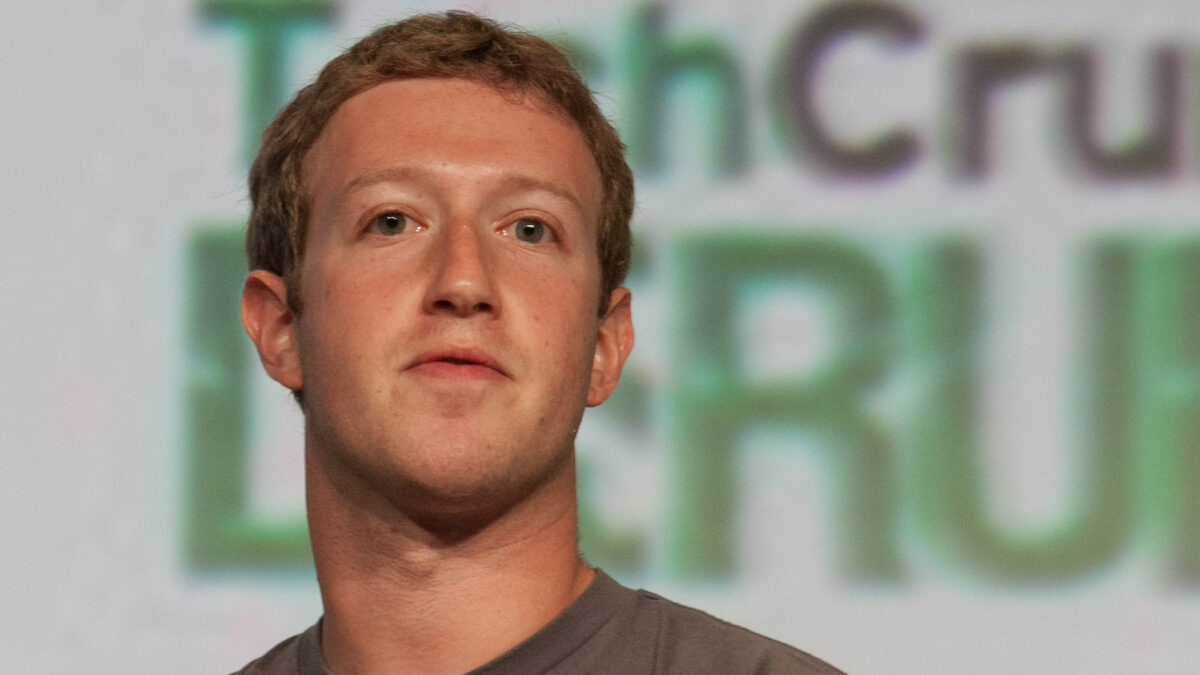Hey, Wisconsin: The future of “Zuckbucks” is coming to a ballot near you.
Badger State voters have the opportunity on Tuesday, April 2 to kill the snake of private funding in election administration, which consumed the 2020 elections under cover of Covid thanks in large part to the “generous” donations of Facebook founder and conservative speech silencer Mark Zuckerberg.
Coupled with a meaningless presidential primary and a spate of local elections, two critical questions on the spring election ballot ask voters whether they want the state constitution to ban private funds in elections and stop local election officials from using private funds in administering elections.
The answer for those who hate the invasion of Zuckbucks is “Yes” times two.
The constitutional amendment questions ask:
1. Shall section 7 (1) of article III of the constitution be created to provide that private donations and grants may not be applied for, accepted, expended, or used in connection with the conduct of any primary, election, or referendum?
2. Shall section 7 (2) of article III of the constitution be created to provide that only election officials designated by law may perform tasks in the conduct of primaries, elections, and referendums?
Early voting in the spring election is already underway.
Leftist Funders Invade Election Offices
In the months leading up to the 2020 presidential election, a Chicago-based, leftist “election reform” organization with ties to the Obama Foundation rained money down on local election offices in election-deciding swing states.
The Center for Tech & Civic Life claimed the $350 million-plus it had received from Facebook founder Mark Zuckerberg and his wife, Pricilla Chan, was intended for election “safety” grants around the country. CTCL insisted the money was not distributed to election offices on a “partisan basis.” But as it turned out, the lion’s share of the $10 million in CTCL grants to Badger State communities went to the so-called “Wisconsin Five,” the largest Democrat strongholds — Milwaukee, Madison, Green Bay, Kenosha, and Racine.
[READ NEXT: The 2020 Election Wasn’t Stolen, It Was Bought By Mark Zuckerberg]
As The Federalist has reported, the grants came with the expectation that left-wing voter activist groups would “assist” the “Wisconsin Five” cities in election administration. Communications obtained through open records requests show a longtime Democrat operative who was embedded in the Green Bay City Clerk’s office offered to help “cure” absentee ballot envelopes and was given the keys to the room where absentee ballots were stored.
Elections officials in “Wisconsin Five” cities will undoubtedly be voting “no” on the ballot amendments on the April ballot. Zuckbucks have been very, very good to these Democrat bastions and their preferred candidates.
As my Federalist colleague Shawn Fleetwood reported earlier this month, the city Milwaukee is looking to cash in on an $800,000 election grant from Cities Forward, a “newly-formed nonprofit ties to a prominent left-wing dark money group.”
Milwaukee elections administrator Claire Woodall-Vogg is tight with the leftist groups. As I reported last year, in the wee hours of Nov. 4, 2020, long after the polls closed in the Nov. 3 presidential election, Woodall-Vogg announced a batch of tens of thousands of votes had finally been counted. The vast majority of the votes were for Democrat Joe Biden, helping to give him an extremely narrow victory over Republican President Donald Trump in the battleground Badger State.
“Damn, Claire, you have a flair for drama, delivering just the margin needed at 3:00 a.m.,” wrote Ryan Chew of the left-leaning Elections Group in an email to the city elections chief. “I bet you had those votes counted at midnight, and just wanted to keep the world waiting!”
Keeping ‘Dark Money’ Out of Elections
Conservative organizations have kept out of the election grant business.
“I’m not aware of any conservative groups that have done similar things, but if you are on the left you should be just as concerned about [private money in elections],” said Will Flanders, Ph.D, research director at the Wisconsin Institute for Law & Liberty (WILL).
WILL, the MacIver Institute, the Wisconsin Voter Alliance, and other election integrity groups are trying to get the word out about the importance of the ballot measures. Advocates for keeping private funds out of Wisconsin elections say they’re targeting voters in Wisconsin’s biggest cities, too, and learning that some traditionally liberal voters there are opposed to the flood of private cash drenching election administration.
“What happened during the 2020 election should never be allowed to happen again in Wisconsin. That means permanently ending organizations with outside interests from having a role in the administration of our elections,” Annette Olson, CEO of MacIver’s 501(c)4 arm, said in a press release. “These common sense amendments would ban dark money from playing a role in administering elections.”
A poll paid for by MacIver Impact found 68 percent of likely voters oppose “allowing government offices that oversee elections to accept funding from private individuals and special-interest groups.” The poll found 64 percent of those identifying as Republicans, 68 percent of Democrats and 72 percent of independents said they do not support private money in elections.
Perhaps the high numbers for Democrats should come as no surprise. Last year, a similar constitutional amendment banning Zuckbucks in Louisiana elections was approved with 72.6 percent of the vote. At the time, Louisiana became “the 26th state to ban or restrict the use of private money in elections and the first to ban the practice via the constitutional amendment process,” The Federalist reported.
The Wisconsin poll also included messaging questions, asking, for instance, whether respondents would be more or less likely to vote “yes” on Wisconsin’s ballot questions if they knew doing so would keep groups like the NRA or billionaires like Elon Musk and Mark Zuckerberg from giving money to election offices. Turns out liberals really don’t like the thought of the NRA or Elon Musk getting involved in Wisconsin election administration.
Flanders says he’s heard from some voters who find the language of the constitutional amendment questions confusing. As is often the case, voters will have to turn the ballot over to get to the referenda questions.
“It’s always hard to distill down something that is going into the constitution,” Flanders said.
Getting Around Evers’ Veto Pen
As of late December, 27 states “prohibit, limit or regulate the use of private or philanthropic funding to run elections,” according to the National Conference of State Legislatures. Leftist Gov. Tony Evers has vetoed legislation that would ban Zuckbucks. In fact, Evers has routinely killed Republican-sponsored election integrity bills. Last week, the Democrat vetoed bills allowing election observers closer proximity to ballot counters and requiring post-election audits.
Republicans opted to take the issue directly to the voters, getting around Evers’ liberally used veto pen. The GOP-controlled legislature passed the constitutional amendment resolutions in two consecutive sessions, as required by law. Evers couldn’t touch them.
State Sen. Duey Stroebel, R-Cedarburg, helped lead the charge in the push to ban Zuckbucks in Wisconsin elections.
“There is no disputing the fact that the outsized share of private funding directed to Wisconsin’s five largest cities in the lead up to the 2020 presidential election drove outsized increases in voter turnout in these same cities, with a clear partisan advantage for Democrat candidates,” Stroebel said in a statement to The Federalist. “This helps to explain why the legislation I helped advance to statutorily prohibit such funding schemes was vetoed by Gov. Evers.”
“The Legislature resorted to placing a constitutional amendment on the April 2 ballot,” he added. “It is now incumbent upon a majority of the Wisconsin electorate to vote ‘yes’ in response to both referendum questions to ensure uniformity and integrity in the administration of our elections cannot be undermined by moneyed interests moving forward.”








